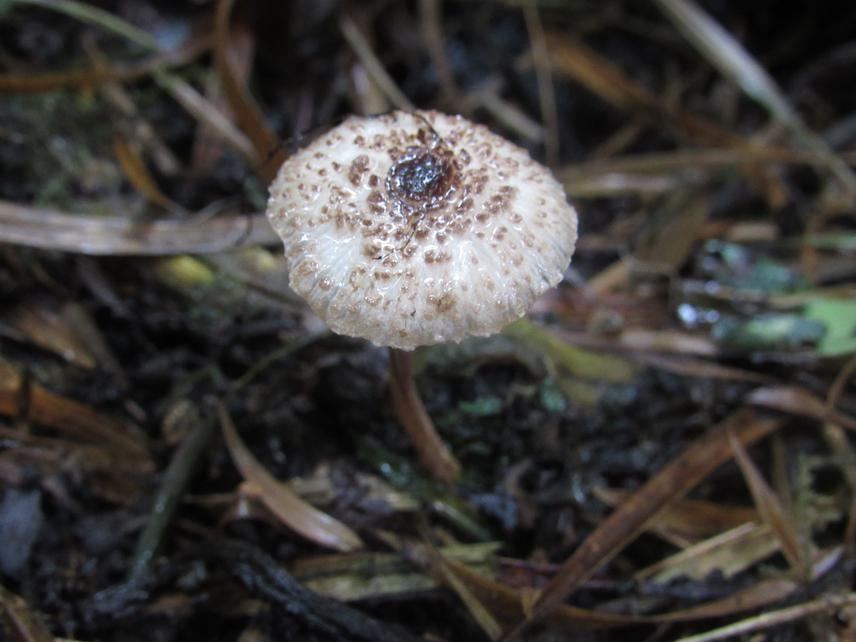Social media video featuring the project.
Elizabeth Melgarejo Estrada
Contribute to the knowledge of the mycological diversity of Bolivia, through the study of the Agaricales mushrooms of the Yungas, and integrating at the same time an ethnomicological approach.
Rehearse the cultivation of edible native species interesting from the point of view of local people, in order to contribute to the local and regional economy through a proposal for sustainable production such as mushroom cultivation.
With the two generated knowledge (scientific and local) intercultural bilingual education interventions will be carried out in the community:
- Conduct awareness and sensitization workshops for the conservation of fungi and the forests in which they live.
- Carry out workshops on the sustainable cultivation of edible fungi in the community.

Leucocorpinus sp. © E. Melgarejo Estrada.
Bolivia is one of the Latin American countries with the greatest biocultural biodiversity (8 ecoregions, 36 indigenous peoples), and is considered a megadiverse country and one of the most diverse areas of the country are the Bolivian Yungas, there are reasons to think that they are important reservoirs of wealth mycological, endemism and ethnobiological richness, since this ecoregion is a Hot Spot of flora and fauna diversity, with centers of important endemisms nationwide. Thus, these ecological systems are managed by native communities (mostly indigenous, peasant or creole) of which little is known from an ethnomicological approach.
Therefore, the project aims to document the richness of Agaricales mushrooms of the Bolivian Yungas, as well as the richness of traditional knowledge of the Quechua, peasant and / or Creole communities that manage the resources of the forests of the Carrasco National Park. We intend not only to establish a purely scientific approach, but also an ethnomicological approach, so that in an integral way bilingual intercultural education activities can be established in pursuit of the conservation of the fungi and the habitats where they are found and that is aimed at the community and to the park rangers, finally to close the project we intend to propose a sustainable income alternative, from the cultivation of native fungi and local interest.
This project is one of the first that aims to document the richness of fungi of the Yungas of PN Carrasco, and seeks to integrate both knowledge (scientific and local).